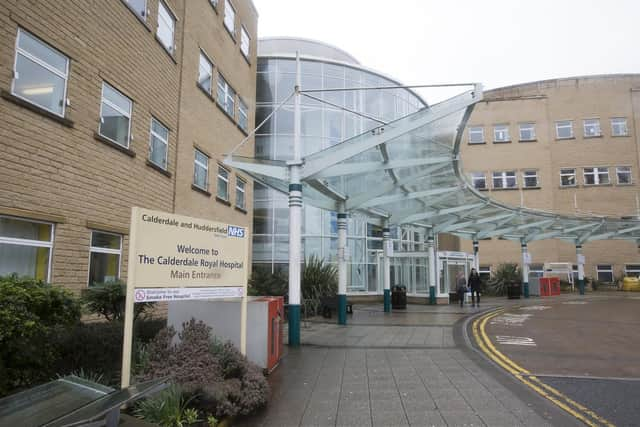Calderdale and Huddersfield NHS Trust sees biggest rise in the homeless visiting A&E
and live on Freeview channel 276
In the UK there were at least 36,000 emergency department attendances by people of no fixed abode during 2018-19, according to hospital figures obtained by the British Medical Association (BMA).
This is up from 11,305 in 2010-11 and a "significant jump" from the previous year, Freedom of Information requests by the body's membership magazine The Doctor found.
Advertisement
Hide AdAdvertisement
Hide AdThere were at least 11,986 admissions to hospitals of homeless people recorded over the same period, compared to 3,378 admissions in 2010/11.


In Yorkshire, the NHS Trust with the most admissions of homeless people was Leeds, with 2,285 between 2010 and 2018.
Meanwhile, Calderdale and Huddersfield NHS Foundation Trust had the biggest percentage increase, rising from zero in 2010/11 to 37 in 2017/18.
The BMA believes the figures only show a fraction of the reality, with the true numbers "likely to be far higher".
Advertisement
Hide AdAdvertisement
Hide AdThe BMA emergency medicine lead and consultant committee deputy chairman, Dr Simon Walsh, said: "These figures are soul-destroying and show the needs of homeless people continue to be ignored and the impact on hospitals not understood.
"That being said, it will sadly not come as a surprise to many doctors who see the harsh reality of homelessness in hospital emergency departments every day.
"If anything, these numbers are just the tip of the iceberg and the true figures are likely to be far higher.
"In recent years community services have become radically overstretched meaning more homeless people are overlooked or left to fend for themselves.
Advertisement
Hide AdAdvertisement
Hide Ad"When they are ill or in need, emergency departments become the net to catch them.
"Doctors and healthcare staff will continue to provide the best treatment they can but ultimately we need more resources made available in order to provide the specialist help that this extremely vulnerable population desperately needs."
Dr Richard Vautrey, GPs committee chair at the BMA, said: “GPs are very concerned about how homelessness can seriously impact the health and wellbeing of many of the patients in their communities, and many surgeries are affiliated with dedicated services and shelters to help give some of our most vulnerable patients the support they need.
“There are GP services in Leeds and Bradford, for example, specifically set up to provide support for the homeless, as well as refugees and asylum seekers - helping them to access both the healthcare they deserve and other charitable organisations. However, as the BMA report highlights, there is an urgent need to do more, and we need the next government to make this a priority.”
Advertisement
Hide AdAdvertisement
Hide AdThe figures also show that 49 hospital trusts said homeless patients had stayed in hospital for at least three weeks, totalling 16,129 days in beds.
Chief executive of the homeless healthcare charity Pathway, Alex Bax, said: “Homeless patients face the very worst health inequalities in our society – and are suffering more than anyone from the impact of nine years of brutal austerity politics in this country.”
He said things could change quickly, however, with the right services available to vulnerable people.
“Pathway teams are an example of how genuinely integrated, joined-up working, from staff across health, social care and other sectors like housing, can make a huge difference to the lives of patients, the working conditions of frontline staff and, ultimately, the pressure on NHS services.”